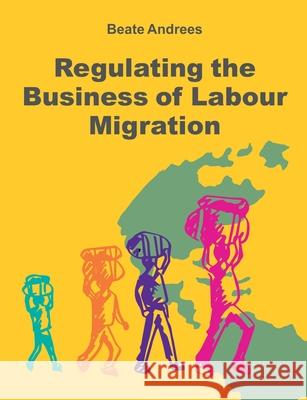Regulating the Business of Labour Migration Intermediaries » książka
Regulating the Business of Labour Migration Intermediaries
ISBN-13: 9783347219984 / Angielski / Miękka / 2021 / 280 str.
Regulating the Business of Labour Migration Intermediaries
ISBN-13: 9783347219984 / Angielski / Miękka / 2021 / 280 str.
(netto: 55,21 VAT: 5%)
Najniższa cena z 30 dni: 57,97
ok. 10-14 dni roboczych.
Darmowa dostawa!
The business of labour migration intermediation has existed as long as people traded and migrated across territories, countries and continents. Recent technological innovations and the global expansion of production and trade have led to an unprecedented increase in international labour migration, providing a fertile ground for labour migration intermediaries. As many recipient countries have created high entry barriers, especially for low-skilled workers, migrants are often at the mercy of informal recruiters. In the worst case, they end up in the clutches of unscrupulous smugglers and traffickers.The growing trend towards informal labour migration intermediation creates regulatory challenges, which are discussed in the book. Which regulatory regimes are best suited to formalize the migration intermediation business, and to protect migrants from exploitation and abuse? Under what conditions will they most likely occur?The study uses a mix of qualitative methods, including a comparative analysis of the regulation of labour migration intermediaries in the United Kingdom and the Russian Federation. In both countries, international standards, particularly on human trafficking and private employment agencies, guided regulatory initiatives. Their outcomes, however, depended on a range of factors, including the creation of alliances between business and workers.











